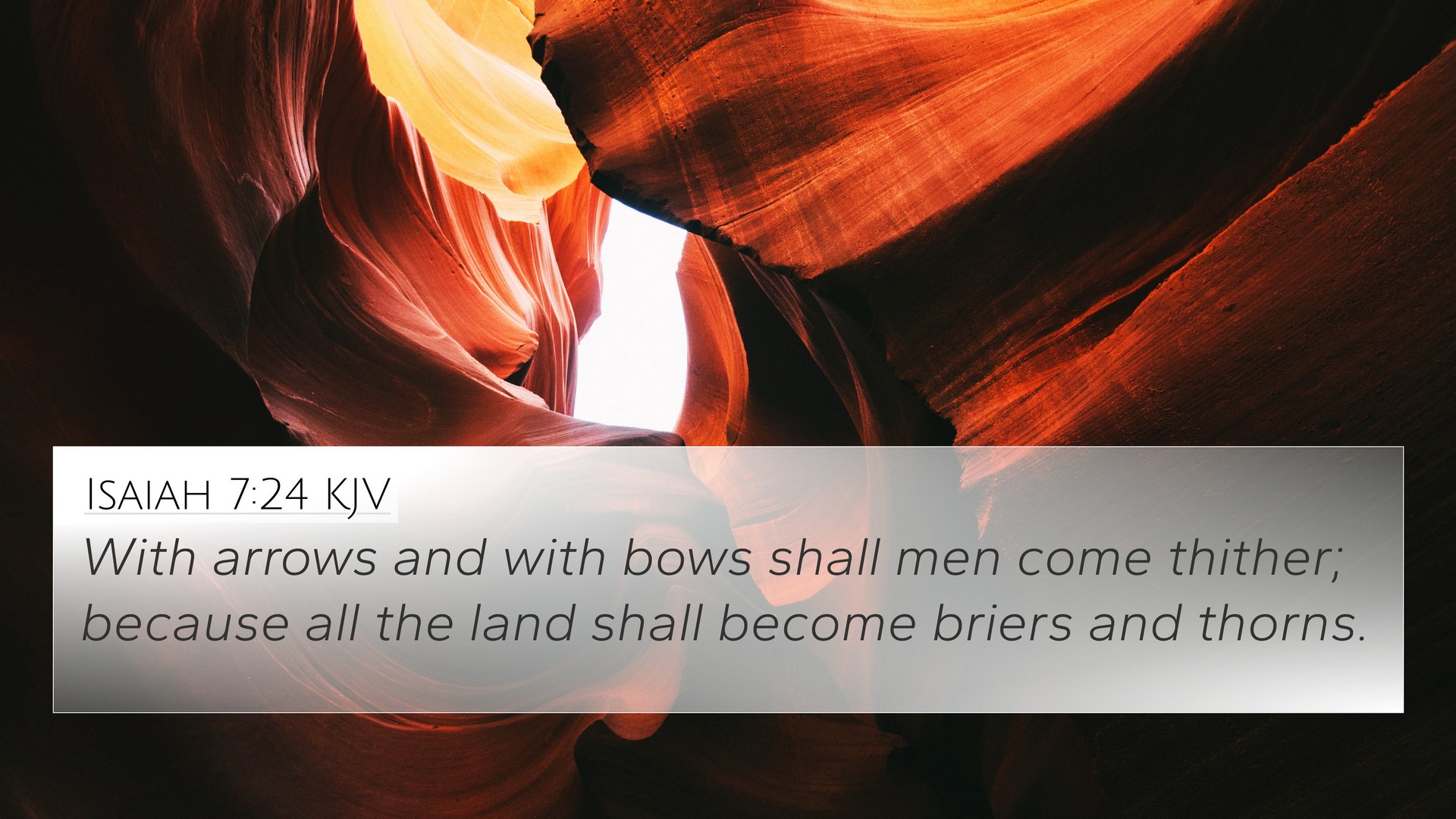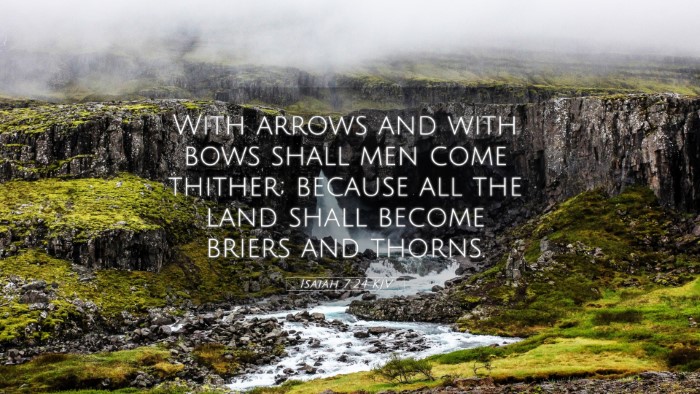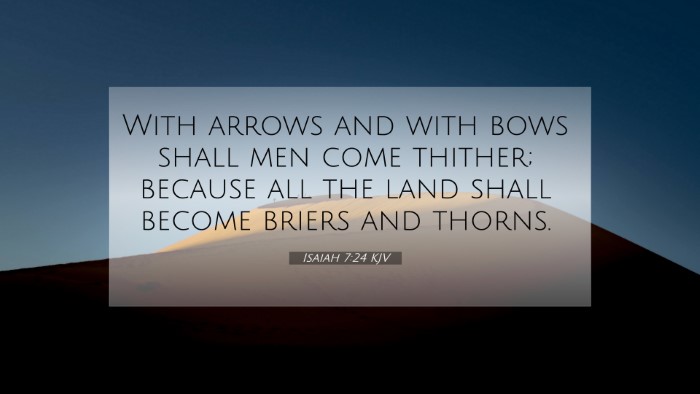Understanding Isaiah 7:24
Isaiah 7:24 states, "And with arrows and with bows shall men come thither; because all the land shall become briers and thorns." This verse is situated in the prophetic context of Isaiah's warning to the people of Judah about the impending invasion from Israel and Syria. It signifies a time when the agricultural landscape of Judah would be devastated, illustrating both physical and spiritual desolation.
Verse Summary
The central theme of Isaiah 7:24 revolves around the consequences of unfaithfulness to God. The utilization of bows and arrows signifies conflict, while the mention of briers and thorns suggests a barren land devoid of blessings due to the judgment of God.
Insights from Public Domain Commentaries
Matthew Henry's Commentary
Henry emphasizes the irony that men would resort to weaponry in a land that was once fertile but now turned to wilderness as a result of their sins. The verse serves as a sobering reminder of the spiritual ramifications of turning away from God's ways, leading to desolation both physically and spiritually.
Albert Barnes' Notes on the Bible
Barnes discusses how the briers and thorns symbolize curses and the loss of agricultural prosperity, reflecting the abandonment of God’s commands. He relates this to the overall message of Isaiah, which warns of the consequences of national sin and the need for repentance.
Adam Clarke's Commentary
Clarke adds that the phrase highlights a future judgment where the land, once flourishing, will instead be a challenge for those who inhabit it. He notes that the use of bows and arrows indicates a return to primitive survival as the societal order breaks down due to internal strife and invasion.
Cross-References and Connections
Isaiah 7:24 encourages a deeper biblical study, supported by a variety of cross-references that enrich its understanding. Below are key verses that relate to the themes within Isaiah 7:24:
- Isaiah 5:6 - “And I will lay it waste: it shall not be pruned, nor digged; but there shall come up briers and thorns.”
- Jeremiah 4:3 - “For thus saith the Lord to the men of Judah and Jerusalem, Break up your fallow ground, and sow not among thorns.”
- Hosea 10:8 - “Also the high places of Aven, the sin of Israel, shall be destroyed: the thorn and the thistle shall come up on their altars; and they shall say to the mountains, Cover us; and to the hills, Fall on us.”
- Matthew 7:16 - “Ye shall know them by their fruits. Do men gather grapes of thorns, or figs of thistles?”
- Matthew 13:7 - “And some fell among thorns; and the thorns sprung up, and choked them.”
- Galatians 6:7 - “Be not deceived; God is not mocked: for whatsoever a man soweth, that shall he also reap.”
- James 3:18 - “And the fruit of righteousness is sown in peace of them that make peace.”
Thematic Connections
The themes presented in Isaiah 7:24 resonate throughout the biblical narrative. The imagery of thorns and briers not only relates to Isaiah's prophetic message but also connects to Jesus’ teachings and parables about the necessity of bearing good fruit, the consequences of sin, and the need for spiritual cultivation.
Practical Application and Study Tools
For students of the Bible eager to explore the depth of Isaiah 7:24, engaging in Bible cross-reference guides and concordances can significantly enhance understanding. Some essential tools include:
- Using a Bible concordance to locate similar themes across the scriptures.
- Employing a cross-reference Bible study to engage with interconnected biblical texts.
- Exploring comprehensive Bible reference resources to identify deeper meanings linked to Isaiah 7:24.
Conclusion
Isaiah 7:24 serves not only as a grim warning about the consequences of sin but also as a call to reflection on the covenant relationship with God. By studying and cross-referencing this verse with others, believers can gain deeper insights into the nature of God’s judgments and His plans for restoration. The interconnectedness of scripture invites a holistic approach to understanding the Bible, fostering a richer spiritual journey.



